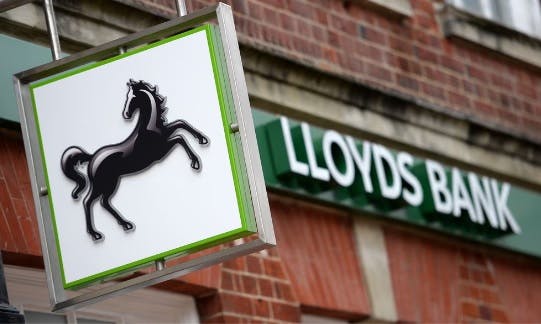Black Horse’s Parent Lloyds Reserves £450 Million for FCA Motor Finance Probe
News 23 February 2024 | Shannon Smith O'Connell |

Lloyds Banking Group, parent company of Black Horse, has set aside £450 million as it prepares for potential costs associated with the regulatory review into historic commission deals in the UK’s motor finance sector, the Group disclosed in a conference call on Thursday, presenting their fourth-quarter and full-year-2023 results.
Charlie Nunn, Lloyds’ Chief Executive, told investors and stakeholders that the Group welcomes the Financial Conduct Authority’s independent intervention, as this will bring clarity to both the consumers and the motor finance industry on issues and concerns over commission arrangements. He further highlighted that the scale of any misconduct and customer loss “remains unclear.”
Chief Financial Officer William Chalmers, clarified that the £450-million provision covers “operational and legal” expenses, as well as potential redress, based on their assessment of “a range of scenarios.”
“To be clear, there remains significant uncertainty,” Mr. Chalmers emphasised, adding that the financial impact “could differ materially” from the amount of the reserve.
Lloyd’s £450-million provision accounts for 67% of the £675-million remediation costs that the Group recognised in the year ending 31 December 2023, reflecting a 164.71% increase from its £255 million in remediation costs reported in 2022.
During the Q&A session, a question was raised about Lloyd’s £450-million reserve and how far low it is based on industry analysts' estimates.
Addressing the query, Mr. Chalmers reiterated that the £450-million provision covers two main things: operational and legal costs, as well as potential compensation for customers. He explained that they have considered a variety of scenarios in the context of the amount, like how far back the review goes and what type of commission model is used. There’s still a lot of uncertainty, so the final costs could change as the situation develops.
Watch Lloyds’ full 1.75-hour webcast on its 2023 financial results here.
FCA’s Probe Into Discretionary Commissions
The FCA announced in January that it was investigating discretionary commissions on auto finance packages over concerns that such arrangements encouraged dealers and lenders to raise customers’ interest rates.
In response, Close Brothers scrapped dividend payouts on regular shares to prepare for potential compensation costs. The company, a Black Horse competitor in the motor finance market, also disclosed that it will assess whether to reinstate paying shareholder dividends beginning in 2025. Motor finance comprises a significant portion of Close Brothers’ loan book, amounting to 20% of its total £9.5 billion loan book as of the year ended 31 July 2023.
The financial watchdog’s probe covers finance agreements inked from April 2007 and January 2021, which is essentially the duration between the dates when the Financial Ombudsman Service (FOS) handled consumer credit cases and when FCA banned discretionary commissions.
The Group related that it adhered to the ban, further stating that it “continues to believe” that its historical procedures were “compliant with the law and regulations in place at that time.“
Serving as Lloyds’s motor finance arm, the Black Horse brand has been in the market since 2001 but its origins can be traced back as far as 1922. Analysts disclosed that Lloyds is expected to face the biggest impact of the potential fallout regarding the watchdog’s investigation.
The Group has also revealed that it continues to face complaints and court claims related to motor finance commissions.
On 10 January 2024, the financial ombudsman issued its final decision in favour of the customer over motor finance commission complaints.
On the other hand, most county court cases have been decided in their favour, Mr. Chalmers said.
Analysts Estimate £2-Bil. Cost vs. Lloyds
Lloyds is expected to face £2 billion in potential compensation payout in light of the FCA’s investigation, according to analysts at investment bank RBC.
Jeffries, however, estimated Lloyds’ potential costs to be £1.8 billion.
Auto lenders in the UK, in general, are expected to be hit by as much as £16 billion in compensation payouts, RBC analysts disclosed. However, it’s only around £13 billion according to analysts at Jefferies.
RBC analysts also estimated the potential compensation payouts against Black Horse’s competitors. Close Brothers is expected to be hit with compensation payout costs as much as £200 million,while the UK-based arm of Santander is predicted to deal with £850 million payments.
Barclays Partner Finance, which only served the industry between 2010 and 2019, is forecasted to face as much as £250 million in costs.
Regulatory Crackdown on Motor Finance Sector
As part of its operational objectives to ensure consumer protection, the FCA has been active in reviewing the historical practices of the motor finance sector. In 2017, it disclosed its plan to look into the industry over concerns that there may be irresponsible lending, potential conflicts of interest, and a lack of transparency.
In 2018, the financial watchdog released its initial report, and continued its initiatives to look closely into the issues of “greatest potential harm” to consumers.
In March 2019, the authority released its final findings, revealing, among other things, widespread practices of the discretionary commission models that conflict with the consumers’ interests.
In October 2019, FCA sought consultation on its proposed ban of discretionary commission models, which was finalised in July 2020 and was effective January 2021.
